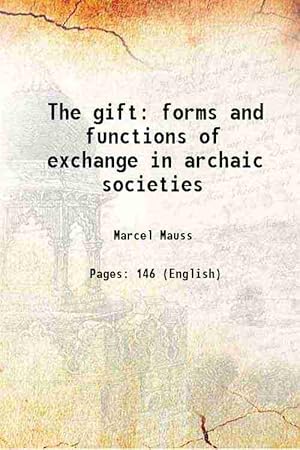

They occur between groups, not only individuals, and they are a crucial part of “total phenomena” that work to build not just wealth and alliances marked by economic wants but social solidarity because “the gift” pervades all aspects of the society. He shows that early exchange systems center around the obligations to give, to receive, and, most importantly, to reciprocate. In different archaic and indigenous societies, he finds evidence contrary to the presumptions of modern Western societies about the history and nature of exchange which assert that it is a relatively newer concept and practice. It analyzes the economic practices of archaic societies and finds that they have a common as well as a main practice centered on reciprocal exchange. Mauss's essay focuses on the way that the exchange of objects between groups builds relationships between humans. The essay was later republished in French in 1950 and translated into English in 1954 by Ian Cunnison, in 1990 by W. Forme et raison de l'échange dans les sociétés archaïques ("An essay on the gift: the form and reason of exchange in archaic societies") and was originally published in L'Année Sociologique in 1925. Mauss's original piece was entitled Essai sur le don. The Gift: Forms and Functions of Exchange in Archaic Societies ( French: Essai sur le don: forme et raison de l'échange dans les sociétés archaïques) is a 1925 essay by the French sociologist Marcel Mauss that is the foundation of social theories of reciprocity and gift exchange.


 0 kommentar(er)
0 kommentar(er)
